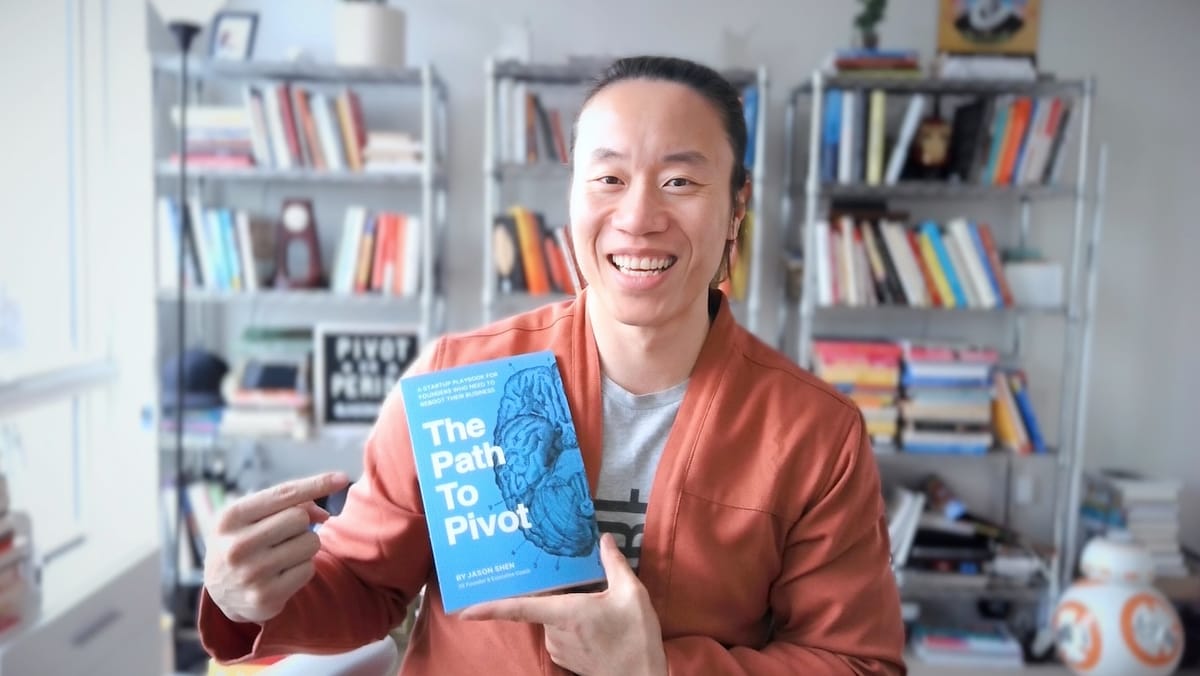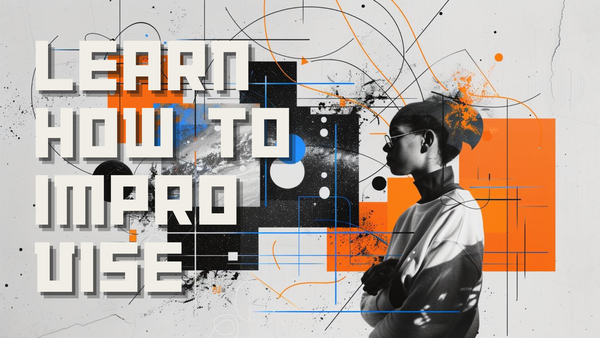Yesterday, I was volunteering with Lunar Accel, an AAPI leadership nonprofit on a career advice panel. And there was one speaker who didn't just give advice, he riffed on the advice of previous speakers and even called out certain audience members for their reactions. He was a great improviser (it helped that he has experience as a Tiktoker)
I guarantee that of the 20+ presenters that day, he's in the top 3 for most of the audience. Yes, everyone was improvising a bit based on the questions. But he was a pro. This got me thinking:
The future belongs to improvisers.
Planning is valuable in a world where there's a lot of predictability and legibility. You know what's going to happen and there's an understanding of what you need to do to accomplish a certain result.
As your environment get more complicated, you start to need to make plans with multiple scenarios in place - scenario one, scenario two, scenario three. But there is only so much planning you can do because in a complex, interconnected, constantly changing environment (ie much of life in 2024), there's actually an exponential number of potential scenarios that you need to plan for.
Sure, you might carve out a basic "bear" and "bull" case for something, but ultimately, this plan leans far more heavily on your ability to improvise and adapt in real-time.
I'd consider myself an above-average public speaker. I started public speaking early - I wrote and delivered a "graduation speech" for my fifth-grade class—it was an acrostic poem based on my school's name.
Seven years later, I also gave my high school graduation speech (despite not being valedictorian), and similarly, I read from a piece of paper. Over time, I learned how to present from slides as memory joggers. For my TED talk, I memorized my speech word-for-word, pause-for-pause, and gesture-for-gesture—which allowed me to squeeze in a 900 word speech into 6 minutes.
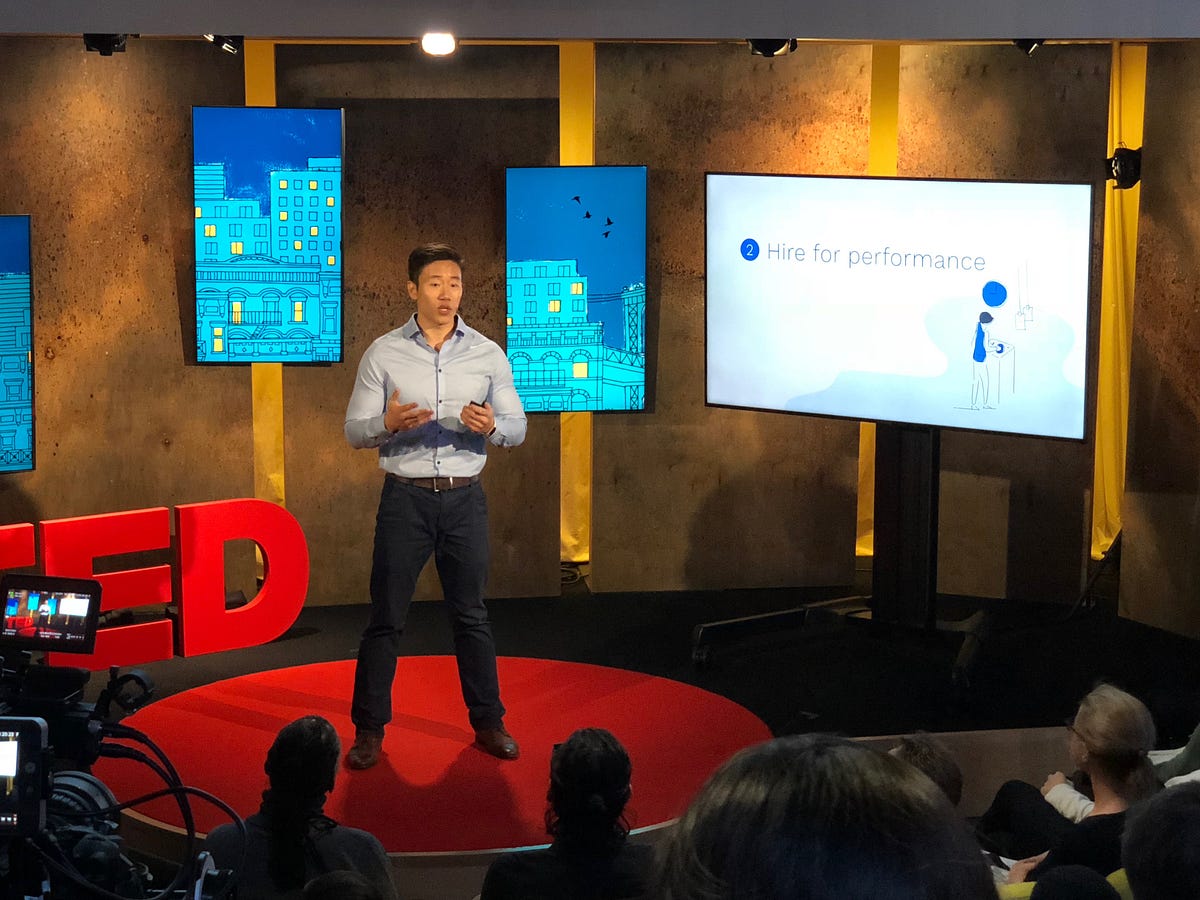
That kind of precision was historically valuable, the same was it was valuable to be able to paint a photorealistic portrait. But then the camera was invented, and all of a sudden artists needed to express someone's appearance in new, more unexpected ways.
The kind of public speaking that I struggled more with was off-the-cuff impromptu speaking. I spent six months in a biweekly Toastmasters group and really worked on honing my MC-ing skills. A great MC, workshop facilitator, or panel moderator is rare to find because it requires having a rough plan while also being responsive to the moment.
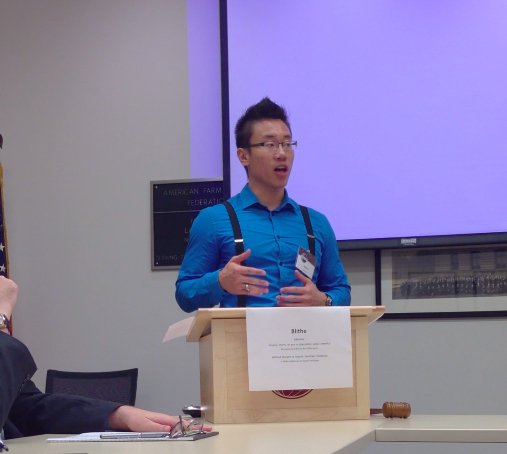
In a lot of ways, improvisation is about coming up with plans faster. Toastmasters helped with this by giving you a chance to practice these skills: you had people who were giving speeches—these are fully prepared days or weeks even in advance.
Then you had the judges, who had to write up some notes about the speech they heard and give feedback. Now we're talking minutes of time to write up notes and speak.
Then you had table topics, which was when someone would bring a question or thought to the conversation ("Where do you fall on the debate between a Dream Job and a Good Enough Job?") and people would volunteer to give a 1-2 minute response on the spot, which means you have seconds to think of what you want to say, start talking, and monitor the time to make sure you're not under or over the time limit.
As an executive coach, I do not go into my coaching sessions with a plan. I meet my client where they are. Sometimes that means picking up from what we were discussing last week, sometimes it means responding exactly, responding in the moment to some new crisis or new concern that has recently popped up. Being able to pivot on the fly has become something I've gotten better at over time.
People love live music. In a world where streaming prerecorded music via Spotify or YouTube is more accessible than ever, people pay huge sums of money for experiences. Ticketmaster sold 620 million tickets in 2023 and Taylor Swift's Eras Tour is expected to gross over $2 billion
Of course, live experiences are rehearsed and planned, but I would argue that what people are paying before, in part, is the spontaneity of the moment when their favorite performer says or does something totally unexpected. Even mistakes and errors are really a way for the audience to see perhaps the performer's true nature. When Usher smoothly fell while on roller skates and quipped "You can't get 'em all right y'all", his fans loved him all the more.
What is planned can be controlled. What is controlled can be faked. When you are improvising, we get a better sense of the reality of someone. That's why we put a lot of faith in off-the-cuff remarks because when people speak without preparation, especially when they think that the microphone is not recording, we feel that reveals their true character. Whether it's Trump's comments in the Billy Bush tour bus or President Obama saying how he thinks Kanye West is a jackass, these impromptu moments are seen as a demonstration of character.
In the era of large language models being able to generate human-sounding speech and avatars that can even make videos that look like you, sound like you, and mimic your mannerisms—being able to speak in real-time becomes even more important.
This is why a lot of people turn to live streaming, whether on Twitch, YouTube, TikTok. This kind of interaction is harder to fake. There's a lot that can be faked right now. So if you're thinking about how you can become more effective and have skills that are still valuable in the future, I would suggest you consider looking for ways to engage with people in real-time, to be more improvisational, to be more unexpected, spontaneous.
So practice spontaneity, practice speaking off the cuff, practice improvisation. These skills will take you a long way.
Three great examples of improvisation:
Freestyle rap (long set up, great payoff)
@alex.ontiktok Rick Glassman gives a task to Harry Mack: come up with a “Girls At Guggenheim” freestyle — amazing! Is there any other rapper that could do something like this? #flowstate #freestyle #rappers #hiphop #improvisation #podcast #legend
♬ original sound - Alex
Comedy crowd work (themes: race, dating)
@AkaashSingh I’ve been in tears for like 5 minutes 🤣🤣🤣 im so weak at the way he squatted to get a better view and Daywalker has me in shambles lmaoooo pic.twitter.com/01xbvjC4RX
— Jhoie Thee Blascilian🧚🏾♂️🧜🏽♀️ (@blapinosicilian) April 10, 2024
Social dance (with random partner pairings)
@kenandbryn When the tallest leader randomly draws the shortest follower 🤪 🎶 - Bed on Fire x Teddy Swims 📍 - MADJam - Washington D.C. 🕺🏿 - KP Rutland 💃 - Emily Huang #dancersoftiktok #westcoastswing #wcs #competition #dancecontest #jackandjill #randompartnerrandomsong #randompartnerandsong #dance #improv #improvdance #partnerdance #danceawesome #dancecompetitions #foryoupage #fyp
♬ original sound - Ken & Bryn
Note how impressive each performance is. And note how much more impressive each one is given the fact that they were made up on the spot.
That's the power of improvisation.
—Jason

How I Can Help You
🧢 Executive Coaching: 1:1 coaching for outlier founders & executives that unlock transformational growth over 4+ month engagements (schedule a call)
🛠️ Participatory Workshops: Interactive seminars designed to learn and practice crucial skills for navigating complex transitions—storytelling, emotional intelligence, experimentation and more.
🎤 Keynote Talks: High energy presentations that challenges audiences to dream bigger and act bolder in the pursuit of excellence.
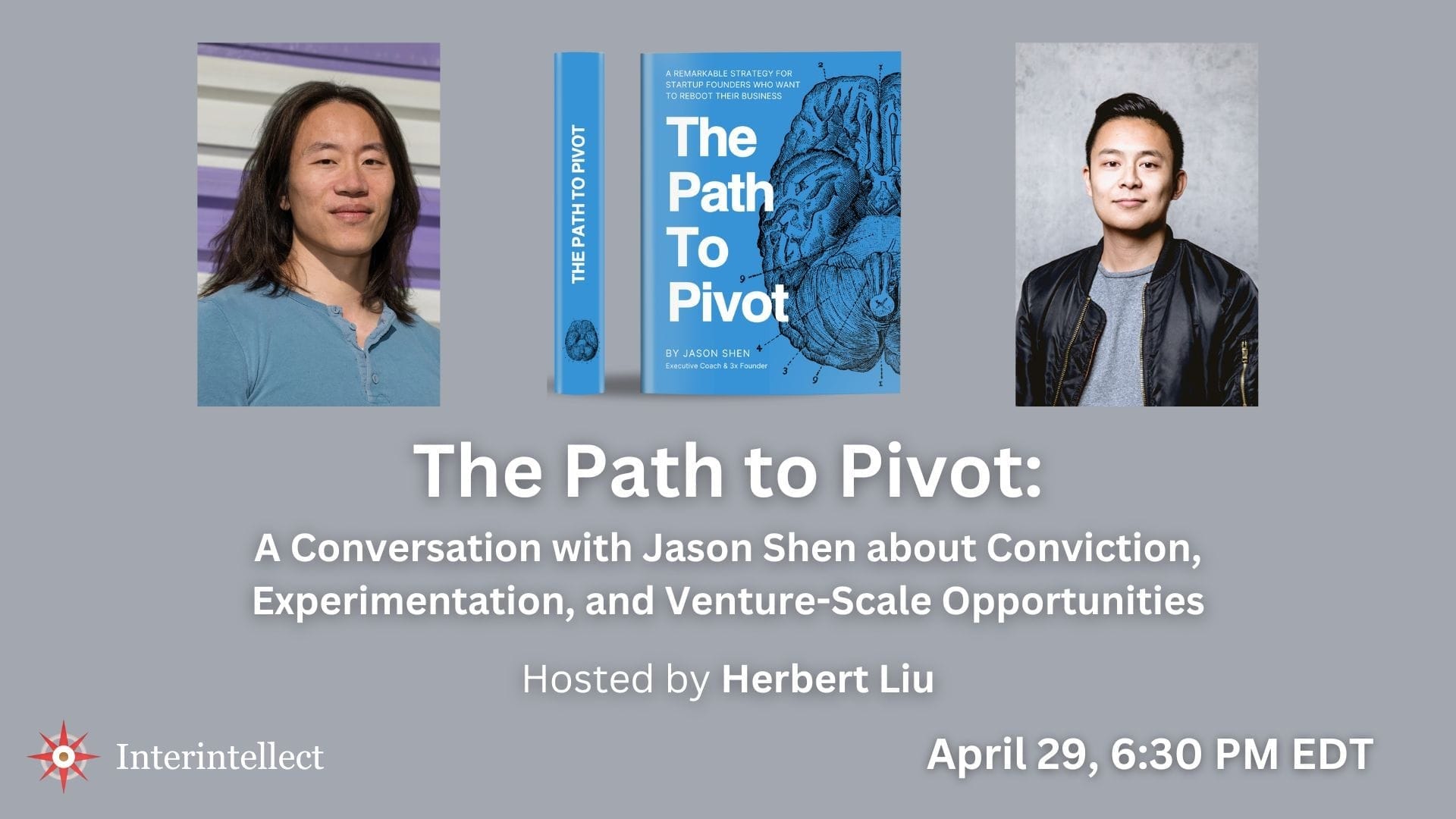
The Path to Pivot Interintellect Salon: Conviction, Experimentation, and Venture-Scale Opportunities
3x startup founder turned exec coach Jason Shen joins creativity expert Herbert Lui for a conversation about how venture-backed startups navigate the uncertain leap from one direction to another in his new book The Path to Pivot: A Startup Playbook for Founders Who Want to Reboot Their Business.
Recent Issues

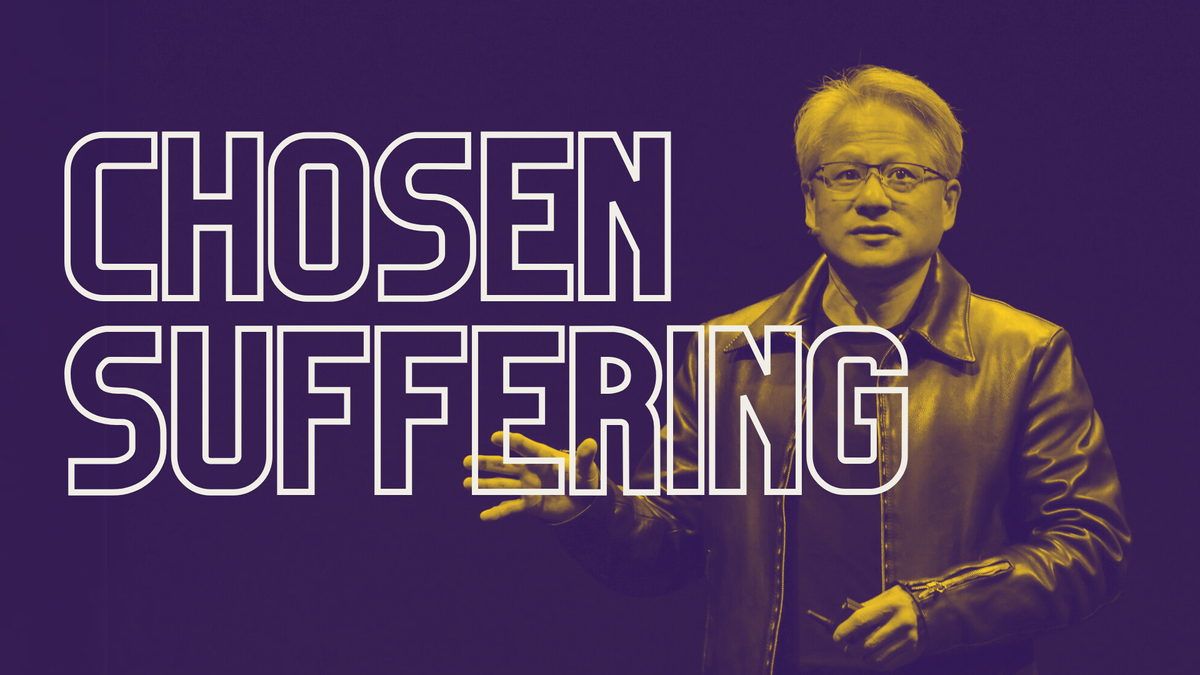
5
